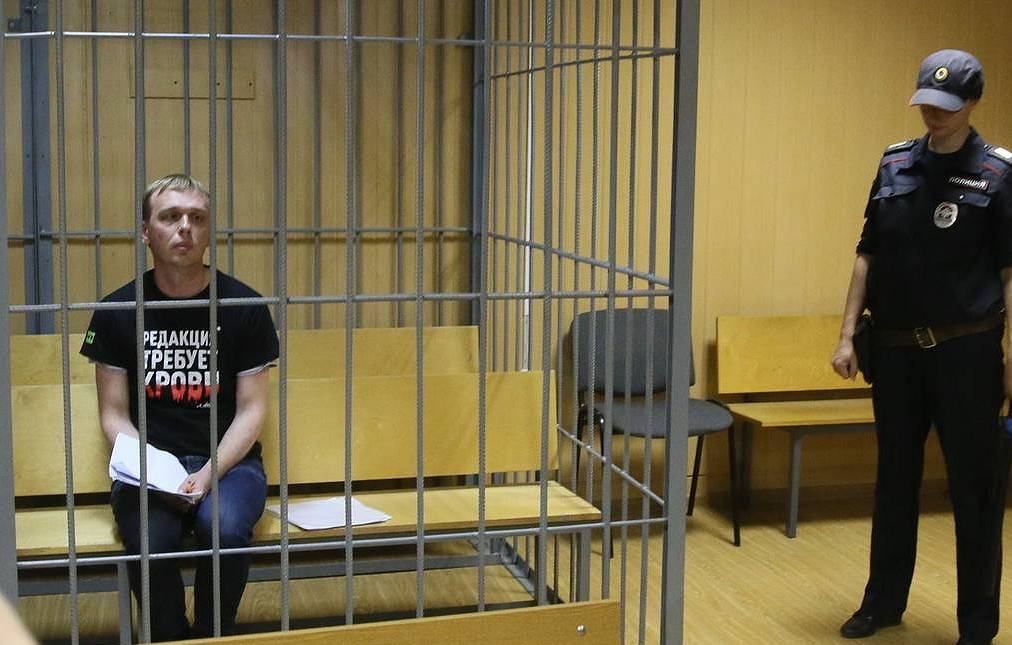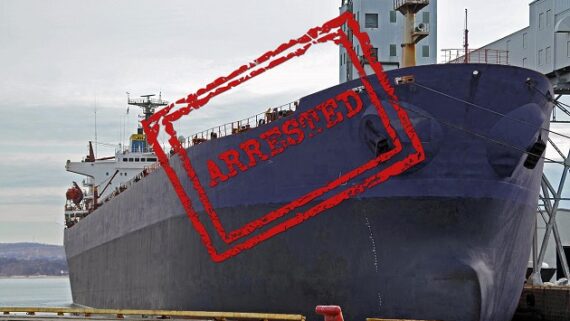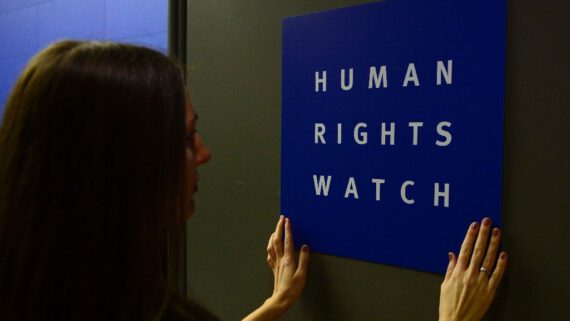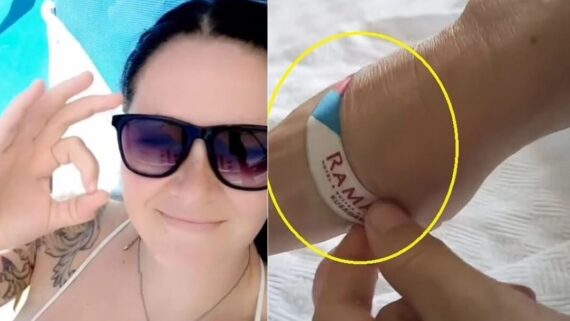Detention and custody, depriving the suspect of his personal freedom, in Turkey are regulated by detailed legal provisions aimed at balancing public security with individual rights. Suspects can be taken into custody by law enforcement under strict conditions and time limits, subject to judicial oversight. The legal framework ensures that detainees are informed of their rights, have access to legal counsel, and are brought promptly before a judge. Key principles such as the presumption of innocence, the right to remain silent, and protection against arbitrary detention are central to the process. For individuals or organizations seeking legal assistance in matters related to criminal defense, unlawful detention, or procedural violations in Turkey, Bıçak Law Firm offers expert legal counsel. With extensive experience in criminal law and human rights protections, the firm provides strategic advice and representation at all stages of legal proceedings, ensuring that clients’ fundamental rights are upheld.
Detention and Custody of Suspects in Turkey
This article explores the legal basis, procedures, limits, and safeguards surrounding the detention and custody of suspects in Turkey – offering insights for individuals, legal practitioners, and international observers alike. In any modern legal system, the balance between protecting individual freedoms and ensuring public order is a delicate one. Nowhere is this balance more crucial than in the context of detaining individuals suspected of committing crimes. In Turkey, the processes of detention and custody are governed by specific provisions under the Criminal Procedure Code and must align with constitutional safeguards as well as international human rights standards. However, practical implementation often raises questions regarding proportionality, procedural fairness, and judicial oversight.
Detained or Arrested in Turkey
If you are a foreign national, and are arrested or detained in Turkey, our legal team of lawyers will do what they can to help you. When we are notified of your arrest or detention, we will aim to contact you as soon as possible, so that we can assess how we can help you. We then aim to provide assistance according to your individual circumstances and local conditions.
We can, among others,
- provide general information about Turkey, detention conditions, and the Turkish legal system (including if legal aid is available)
- provide general information about the local prison or remand system, including visiting arrangements, mail and censorship, privileges, and welfare services
- keep in regular contact with you, either by visiting or by letter. The frequency of contact will depend on local conditions and your personal circumstances
- tell the police or prison doctor, with your permission, about any medical or dental problems including medication
- in some circumstances we may be able to help take up complaints with the police or prison authorities about ill treatment, personal safety, or discrimination, if you are not treated in line with internationally recognised standards
- help to transfer money to you from your friends or family. In places where phone or postal services aren’t available, we can also pass on messages and deliver letters to the prison (but generally we cannot arrange for delivery directly to you)
- in some circumstances we may be able to help you apply for a transfer to a prison in your home country
Arriving at the police station: your basic rights
Following detention, you should be informed, in your mother tounge (if necessary, using an interpreter), why you have been detained. Adults can be held in police cells for up to 24 hours maximum by which time they must either appear before a judge or be released. Up to 12 hrs can be added to 24 hrs for transfer from police station to the nearest court. If the crime falls under the jurisdiction of the high criminal courts that are responsible for serious crimes, this period is 48 hours. The only exceptions are mass crimes and terrorism where a person can be held up to 4 days. In addition, according to Counter Terrorism Law the detention period may be extended furthermore in complex cases.
Police will notify the Embassy/Consulate unless you refuse, in writing. The Embassy/Consulate will only inform family and friends of your arrest if you authorise them to do so (there are some exceptions if you are a minor).
You are examined by a state doctor before and after detention. This makes it easier to investigate allegations of torture and ill-treatment.
Our lawyer can visit you whilst you are detained, but relatives, friends and consular staff are not allowed to visit you.
Right to See a Lawyer
Before any police interviews, you have the right to see a lawyer. You can choose which private lawyer you’d prefer, but if you can’t pay for a private lawyer you’ll be appointed a lawyer by the bar association, free of charge. The lawyer can be present during your statement or interrogation, before the arrest inquiry.
You can inform a relative or designated person about your arrest yourself, provided that this doesn’t affect the investigation. Otherwise, the police or our lawyer will inform your family that you are detained.
Your personal belongings, including mobile phones, will be held by the police and you will be given a receipt for these. Your belongings will be taken with you to court and, if you are released by the judge, they will be returned to you – unless they are kept as part of the court’s investigations.
You will have access to food and water during your stay at the police station.
Informing Family Members
If you want us to, we can tell your family or friends that you have been detained and can provide them with information about how to contact you. With your consent, we can also keep them updated on your well-being.
If you are not sure about informing your family, we can help you consider the impact that not doing so might have. For example, it may cause them distress if they do not know where you are or cannot contact you. It can also be a disadvantage to you if you need someone to send you money or act on your behalf while you are detained.
Who can visit and how to arrange visits
Only close family are permitted to visit (Parents, children, spouses, siblings, aunts, uncles, nieces & nephews). However, prisoners are allowed to nominate up to three people by filling in a “Friend form”. This form must be submitted within 60 days of arrest. Prisoners’ friends who are nominated are allowed visits if approved by the Public Prosecutor or Ministry of Foreign Affairs.
You are allowed one visit per week up to a total of four visits monthly: 3 closed, 1 open.
Depending on the nature of the offence, some visit applications may require permission from the Turkish Ministry of Foreign Affairs. This must be arranged by the Embassy/Consulate and takes a minimum of four weeks. Please contact the consular case officer should you wish to arrange this. Please ensure that you do not book travel until visit permission is received.
Visit applications which do not require permission from the Turkish Ministry of Foreign Affairs, can be made in person to the public prosecutor on the day of the visit along with the below documents:
- petition letter to public prosecutor
- photocopy of passport
- document showing the relationship between the prisoner and visitor (issued by Consular staff)
The family should contact the Embassy/Consulate in advance to book an appointment prior to the visit in order to obtain the necessary documents required by the public prosecutor.
Visitors must show their passport and the permission approved by the prosecutor in charge when they arrive at the prison. These are held by the prison and the passport is returned at the end of the visit. Visitors will be searched before entering the prison.
What to expect when you visit
There are two types of visits: closed and open. Closed visits are where prisoner and visitor sit either side of a glass window and speak to each other on the phone. Open visits are conducted in the ‘lawyers’ rooms’ where the prisoner and visitor can sit at opposite sides of a table. Visits can last between 30 and 90 minutes depending on the physical conditions and capacity of individual prisons. Guards are present during visits. In normal circumstances visits take place as planned. In recently built prisons you should expect to have retina scans entering and exiting the secure areas.
What you can take on your visit
Only clothes, books and magazines can be brought to prisoners, although some prisons do not accept anything else other than clothes. All bags and parcels will be searched before entry and authorities have the right to withhold items, they deem to be unacceptable. Clothes for prisoners in green, blue and khaki-coloured are not acceptable.
What you can take on your visit
Only clothes, books and magazines can be brought to prisoners, although some prisons do not accept anything else other than clothes. All bags and parcels will be searched before entry and authorities have the right to withhold items, they deem to be unacceptable. Clothes for prisoners in green, blue and khaki-coloured are not acceptable.
Duty to investigate crimes
The Public Prosecutor has the duty to investigate crimes (Article 160, CMK). There is an obligation to investigate in case the Prosecution Office obtains information supported by facts. The police investigate cases only when the prosecutor has ordered them to do so (Article 161/1, CMK). Detention, depriving the suspect of his personal freedom, can be conducted without a written order of a court.
The power of detention
The power of detention is now regulated by Article 90, CMK which contains quite detailed provisions. Any citizen may detain an offender during the commission of the offence, or during hot pursuit, if in the meantime the offender might escape or not be identifiable (Article 90/1, CMK). The public prosecutor shall be immediately informed about the detention, and the police shall act upon the orders of the public prosecutor (Article 90/5, CMK).
The public prosecutor or the police have separate powers to detain those suspected of terrorism offences under the Anti-Terrorism Act.
Police custody
The public prosecutor may issue an order for police custody, if there is “concrete evidence that indicates the suspicion of the committed offence” (Article 91/2 CMK, as amended by Law No. 2014-6526).
The police detain people in custody suites which are normally situated within large police stations.
Once detained the police have powers to question the suspect and collect their biometric information. The information collected during detention helps the police determine whether a suspect should be charged with a criminal offence.
Duration
If the detention is related to a crime while the offender was committing it, the detained person will be brought to a Justice of the Peace within 24 hours for interrogation. He will be immediately taken to the appropriate court if a prosecution has already been instituted (Article 91/1, CMK). The time necessary to bring him before the judge is not included in the 24-hour requirement, but it may not exceed 12 hours (Article 91/1, CMK, as amended in 2005– 5353).
The 24-hour period of deprivation of liberty for crimes committed by three or more persons may be prolonged up to four days by a written order of the public prosecutor if the collection of evidence becomes difficult. However, the prolongation shall be given for one day each time and may not exceed four days altogether (Article 91/3, CMK).
Treatment
Those detained in police custody should be treated with dignity and respect. The custody environment is expected to be clean and safe. Those in custody must have access to appropriate legal and medical advice. Any use of force against those in custody must be necessary, proportionate and legal.
There have been longstanding concerns with the delivery of police custody and particularly the treatment of vulnerable people in custody.
The custody environment
Detainees should beheld in a custody suite that is clean, safe and in a good state of repair. It is required that;
- All cells to be equipped with a bell system so that detainees can get the attention of officers if necessary.
- Good maintenance arrangements to be in place.
- Cells to be designed in a way that minimises the risk of attempted suicide or self-harm.
- Practices to be in place when cells have restricted natural light and facilities.
- Custody suite staff to be able to safely evacuate detainees in the event of an emergency.
Detention Regulation sets requirements on police forces for the conditions of detention. This requires;
- custody cells to be adequately heated, cleaned and ventilated. They must be adequately lit, subject to such dimming as is compatible with safety and security to allow people detained overnight to sleep.
- Blankets, mattresses, pillows and other bedding supplied shall be of a reasonable standard and in a clean and sanitary condition.
- Access to toilet and washing facilities must be provided. This must take account of the dignity of the detainee.
Detainee rights
The police must:
- Tell the suspect why they have been detained
- Allow the suspect to speak to a lawyer at any time
- Provide them with a written summary of their rights in a language they can understand.
- Provide them with medical care they require
- Provide them with food and water, People who are detained must be offered at least three meals a day with water
- Allow them to have regular breaks from questioning (including, if possible, access to fresh air).
The detainee must be informed of his rights by the police during the detention and if he requests so, he has the right to have his counsel present during the interrogation (Article 150/1, CMK). For children and for suspects of crimes carrying imprisonment at the lower level of more than five years, there is an obligation to appoint a lawyer if the suspect does not already have one (Article 150/2, and 3 CMK).
The Justice of the Peace interrogates and can release the detained person if he or she determines that arrest was not necessary or if the reasons for detention no longer exist. There is a requirement that an appointed defence lawyer be present during this interrogation (Article 91/6, CMK).
Remedy against detention
A remedy against detention (Article 91/4, CMK) was introduced in 1992: the detained person or his lawyer, his legal representative, his first and second degree relatives or his spouse have the right to demand a decision from the Justice of the Peace against the written order from the public prosecutor relating to the prolongation of the detention period or on the legality of the detention as such. The Justice of the Peace reviews the file and gives his decision immediately or, at the latest, within 24 hours. He may reject the application if he considers the detention or prolongation period to be justified, or he may order that the detained person be brought to the public prosecutor together with the documents relating to his investigation (Article 91/4, CMK).
If the detention was unconstitutional, the detained individual may claim damages under Article 141, CMK. The State is responsible for compensation, but it may recover the cost from the officer who had conducted the illegal detention according the rules of a civil claim now (AY “2001-4709,” Article 19).
If the detained person is to be released because the time limit on the detention has run out or because the Justice of Peace has ordered his release, the same person may not be detained for the same actions again, unless there is new and sufficient evidence against him. To detain the suspect again, the public prosecutor must provide a written order (Article 91/5, CMK).
Legal Status of the Suspect and the Defense Counsel
The present Turkish Code of Criminal Procedure regulates the suspect’s rights during the criminal investigation. Defense counsel has unlimited access to the file of investigation. Limitations regarding protection of the confidentiality of investigations (Article 153/2, 3 and 4 CMK) were repealed in 2014 (Article 153 CMK, as amended by Law 2014-6526).
Suspects are entitled to have a defense lawyer present during the police interview (Article 147, CMK) as well as to be interrogated by a judge and to have their lawyer present during the interrogation in cases of arrest (Article 91/6, CMK).
Legal Status of the Victim
The Criminal Procedure Code includes a special subsection for the rights of the victim and person injured by the crime (Articles 233-236, CMK). The civil party has the right to report the crime or to file a complaint about the committed crime (Article 158, CMK).
Turkish Law differentiates between the informant (denouncer), who is reporting a criminal offense, and the civil party, who is the victim of or is injured by the crime. The victim and the person reporting the crime have the right to give testimony about the crime and shall be summoned by the prosecutor, the judge or the court (Article 233/1, CMK).
The victim and the person who filed a complaint have the right to ask that the evidence of the crime be collected, to ask the public prosecutor to furnish them with copies of the documents included in the file of investigation (without violating the rule concerning privacy of the investigation) and to ask a lawyer appointed by the Bar Association to assist them if they do not have an attorney. This lawyer has access to the file under Article 153, CMK and the right to oppose the decision of the public prosecutor to drop the case (Article 234/1-a, TCK).
Interviews
Interviews with suspects are conducted ‘under caution’ and must be noted or recorded. Before conducting an interview, the police must inform the suspect what they are suspected of and allow them to access legal advice if they chose to. Suspects have the right to request legal advice at any time during their police detention.Officers must delay an interview in order to facilitate a suspect’s access to legal advice if requested.
The police do not require a suspect’s consent to conduct an interview. Suspects may choose to answer questions with “no comment”. Following the interview suspects have the right to review a record of what was said to confirm it is accurate.
For many people, their first response when faced with police questioning is to attend on their own and to answer questions immediately, believing they can talk their way out of the situation and leave as quickly as possible. This is rarely the best strategy.
Biometric information
The police have the power to take an image, the fingerprint information and a DNA sample of almost every suspect they detain. In most cases the police can take this biometric information without a suspect’s consent. However, they do require the consent and authorisation to take DNA samples in certain circumstances.
Outcomes
There are four possible outcomes once a person has been arrested and detained by the public prosecutor or the police. They can either be:
- Released with no further action: The public prosecutor or the police should give written notice to the person confirming that they are no longer suspected of a crime.
- Released under investigation
- Directed to the peace judge for arrest or judicial control
Contact a Defence Lawyer
Effective defence begins at the police station. Our specialist police station advisers and lawyers are available 24 hours a day 365 days a year. We will identify the relevant facts and law to ensure the prosecution use every opportunity to exercise their discretion and act proportionately. We are able to attend the police station when you need us. Our presence at the police station throughout the period of your detention ensures that the police deal with your case expeditiously and in accordance with the law.
 English
English Türkçe
Türkçe Français
Français Deutsch
Deutsch










Comments
No comments yet.